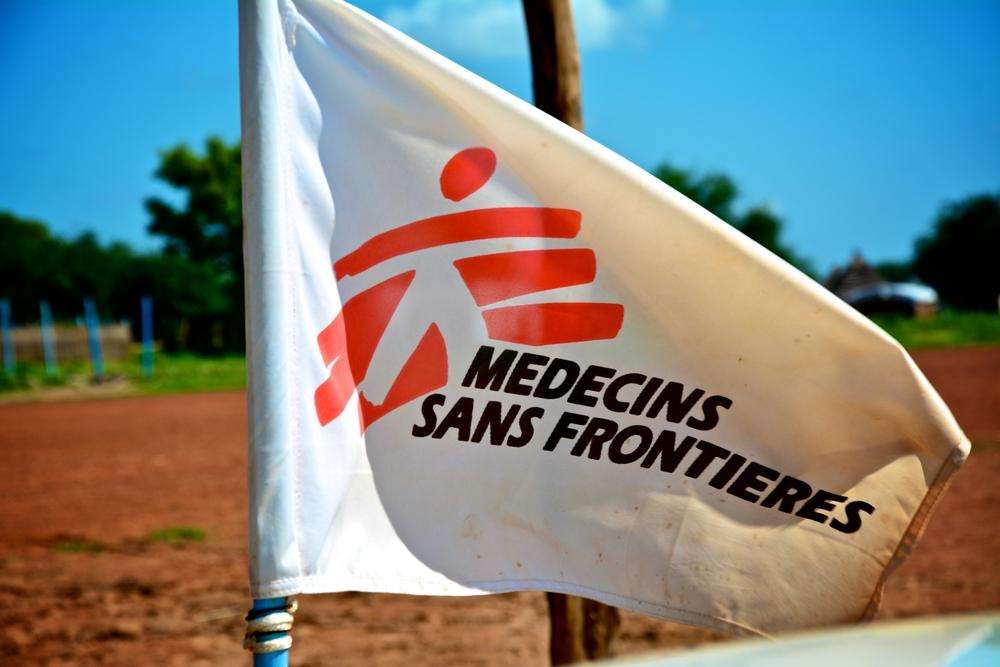The village of Al Nuaymah, in southern Syria, was once home to 10,000 people. During the past six years of war, the village has been badly damaged by airstrikes.
Nearby fighting between Syrian government forces, opposition forces, and IS-affiliated groups has forced many residents to flee their homes. However, with little money and few resources, people are unable to travel far, and many places remain unsafe. Some residents have opted to return to Al Nuaymah to live in buildings that are in ruins or tents pitched on the land. Often, several families share one home.
Doctors Without Borders/Médecins Sans Frontières (MSF) is responding to this new crisis with an emergency distribution of 893 kits of essential relief items to families in two areas: farmlands just east of Dara'a City and Al Nuaymah. The kits include hygiene items, clothes, cooking utensils, blankets, and mattresses.
Mohammed Ali Aboud and his family received one of the kits. He spoke to MSF about the difficulties his family endure.
Can you tell us about your family and your home?
There are 21 people in my family, including my grandchildren. We are originally from Al Nuaymah. Before the war I was a taxi driver here. In 2014 the fighting in our village became very bad. We left for Busra and stayed for three months. We came back to Al Nuaymah when we believed things had calmed down. We were wrong. My wife and three of my sons were killed here in July, 2015. They were killed by a barrel bomb. I have two sons left, the children of those two sons, and the sons of the three who were killed. I have two daughters and both are married.
What is the situation like in Al Nuaymah today?
There are frequent airstrikes. We can only move safely to two other towns, Um al Mayathen and Saideh. Beyond that, villages are under regime control. It is a very dangerous situation. The children have not gone to school in three years. There is no school in the village. Some people have moved to another place for their children´s education but we could not afford it.
Does your family have access to food, water, and basic necessities?
We depend entirely on aid we receive from humanitarian organizations. We receive milk, flour, rice, and bulgur. We wish there was baby formula, because some children in my family are young, just eight months old. There is no electricity here. The water comes from artesian wells, drilled by local activists. My family lives in our old house. It used to have four rooms, but it was destroyed by the bombing. Now there is one room left. My son and I stay in this room. The rest of the family live in two tents outside the house.
What do you use for heat?
There is some gasoline available but it is too expensive and I cannot afford it. We have an open fire. Over the winter, I burned the bedroom furniture. I also cut two olive trees near the house and used that for fire. It´s difficult to find wood. We wish we had more canned food. It is difficult to cook rice and bulgur without fire.
Do you have access to health care?
There are no doctors in the town and a great need for medicine. There is only one nurse, who can help with a headache or stomach ache. My grandchildren are very young, and need to see a doctor, because they are often sick. The nearest clinic is 30 kilometers [about 18 miles] away. One of my sons suffered a head wound from the barrel bomb. He needs treatment but he does not get any.
Did you receive a relief kit from MSF?
Yes. Now we have blankets, mattresses, hygiene items, and some kitchen tools. It makes a big difference. We need any help that any organization can offer. As for the future, we have lost all hope. Our only belief is in God. We hope also that one day in the coming months that there will be a solution to this conflict, but we doubt it.




